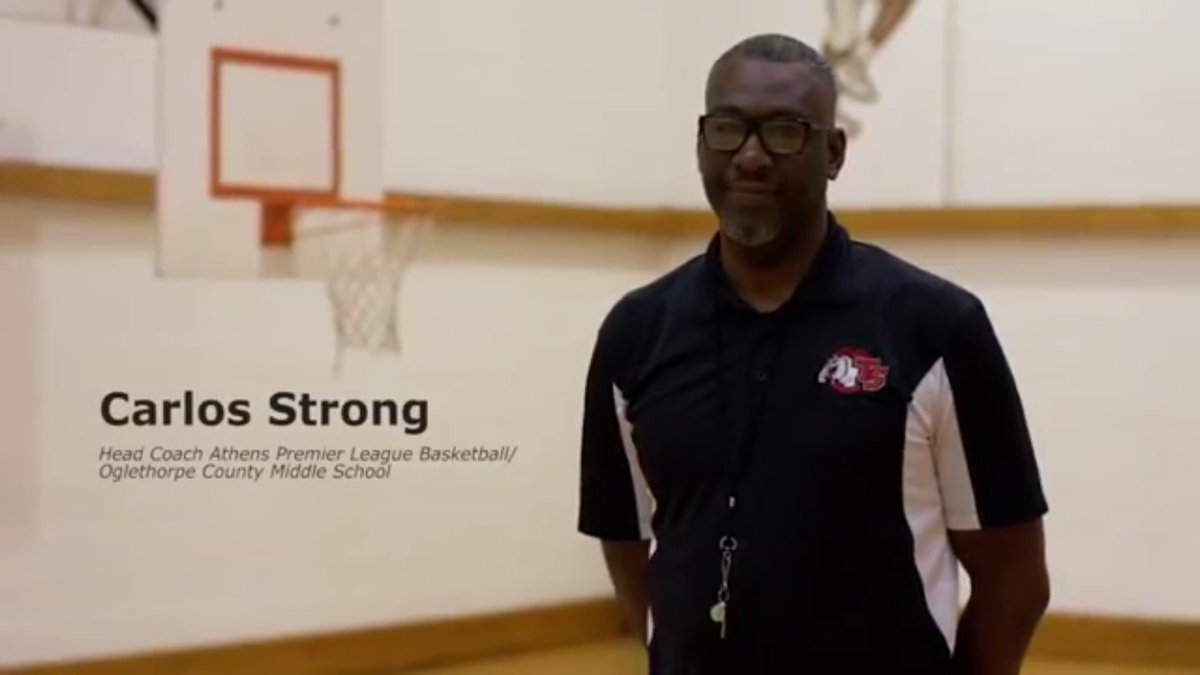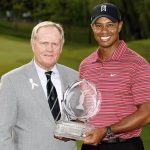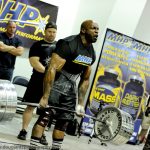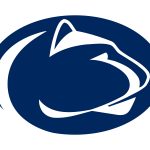In France the streets are sometimes too empty, which is never the case in Buenos Aires, where people mill about at all hours. Italy has the great food, and in the Philippines there’s the rain, always the rain.
Living around the world allowed Carlos Strong to take in its many variables, but through the differences he discovered in people, culture and climate, there remained a common thread – basketball. For more than a decade Strong traveled the world as a professional basketball player, donning jerseys in such places as Charlotte (for the NBA’s Hornets), Sioux Falls (the Continental Basketball Association’s Skyforce), Argentina (Boca Juniors) and the Philippines (for the oddly-named Mobiline Cellulars), seeing the world one 94-foot court at a time.
“They are insanely passionate about their sports over there, if there’s a team in the city they’re passionate about it,” Strong said of international basketball fans. “The difference is the level of competition, but they play hard every time they’re on the floor. One game a week, most two, very laid back, you practice two hours a day and you’re done. The biggest thing is time, you have so much time on your hands. It just an adjustment once you get over the culture shock and adjust to that.”
During his professional days, Strong’s time in his hometown of Athens, where he played high school and collegiate ball, was fleeting (“He was a blur,” his brother Keith said). But now the ever-moving Strong has slowed, has a young daughter and son, and wants to give back to the city which helped build him. Carlos Strong the player is now Carlos Strong the coach, and his goal is to create a basketball culture in Athens as varied and connected as his worldwide travels.
“I’m a product of here and I feel like who would I be to go somewhere else when there’s kids that need me here,” he said. “This is where I came from, this is my roots and this is where I wanted to be.”
* * *
It’s not a reach to say Athens has not seen a basketball player as talented as Carlos Strong.
During his senior season at Cedar Shoals High School, Strong was not only ranked as one of the top five players in the state, he was one of the top five in the country. Selected to the 1992 McDonald’s All-American team – a team which included Jason Kidd, Tony Delk and John Wallace – he won its All-American Slam Dunk contest (past champions include Vince Carter, Carmelo Anthony, Blake Griffin and a guy named LeBron James). He attended all-star games and was sought by every major college team in the country.
He could have gone anywhere. He chose to stay home.
As a boy he worked at Georgia basketball games, then under the guidance of Hugh Durham. He went and worked at football games, soaked in the atmosphere of being a Bulldog and “breathed and lived or died with the red and black.” When Durham came calling his freshman year, then sophomore year and so on, his loyalty usurped whoever else came to his door.
“Billy Donovan and (Rick) Pitino sat in my living room,” Strong said of the former assistant and head coach of Kentucky, now head coaches of Florida and Louisville respectively. “I was asked maybe two years ago do I regret going to Georgia because I was recruited by so many others, but I don’t regret it because it shaped me into who I am now. I never have any regrets.”
Georgia certainly didn’t. A four-year starter who never missed a game, Strong finished his initial season on the All-Southeastern Conference freshman team and played for the Junior Olympic squad. By the time he was done at Georgia, he ranked eighth on the all-time rebounding list and 12th on the scoring list. During his senior season, when Tubby Smith took over the coaching duties from Durham, Strong led the underdog Bulldogs into the NCAA Tournament as an eighth-seed. Georgia proceeded to beat Clemson, then top-seeded Purdue before a Syracuse 3-pointer at the end of overtime ended the Bulldogs’ season in the Sweet 16.
Strong averaged 13.5 points and 6.4 rebounds that season, and while NBA teams weren’t clamoring for him like colleges were four years before, he was certainly on their radar. On draft night, Strong went unpicked, but not because a team didn’t want him.
“I was going to be drafted next to last (by Seattle) and we decided not to because Charlotte was very interested in me,” he said. “I was blessed enough to get the opportunity and they didn’t draft me so I signed with Charlotte that next morning.”
It was 1996 and a new basketball chapter opened for Strong, but he never thought it would take him as far as it did.
* * *
For his career up to the NBA, Strong was an ironman. He didn’t miss games – he didn’t miss minutes – but it took a toll on him. He made the Hornet roster, a strong team with Vlade Divac, Glen Rice and his former McDonald’s teammate Delk (another connection), but a back surgery sidelined him. After another year working to return, he was let go by the Hornets and signed with the Dallas Mavericks.
All his life basketball was fun, but there came a point in college where it becomes work. At the NBA level it’s a job, and a tenuous one at that.
“Once you get to college, fun is gone,” Strong said. “It’s not really fun because you’re playing for your job every night, someone is right behind you. . . . I went to Dallas and I was out there for a year, and after that it got to be where you go to camp and they’ve got eight guys in your position and it got to be old.”
But basketball didn’t get old, simply the process of where he was at did. Strong knew of others who played overseas and was intrigued, but he had to fight the mind-set following many an NBA player who doesn’t play in the NBA anymore – the “I’m too good to play over there” way of thinking.
“Once you get over the humbling part – like I’m supposed to be in the NBA – everything else is smooth sailing,” Strong said. “That was tough for me at first but I got over that and had a great time . . . You get over there, you’re realize, OK, they take pretty good care of you and you make pretty good money. I loved it, and I stayed.”
A little primer about basketball leagues not the NBA, and there are a ton of them out there. In the late ’90s when Strong made his move, alternate leagues in the U.S. included the CBA (which is now the NBA D-League), the American Basketball Association and the United States Basketball League. The CBA is where players had the best chance to return to the NBA, as 10-day contracts were (and still are) a ticket back to the big time. But the money is not as good as it is overseas, and the lifestyle is one of dorms and vans.
Once you leave the mainland, though, the landscape changes dramatically, and the level of play depends on the country you’re in. The Euroleague is top of the heap, consisting of teams from Spain, Russia, Turkey, Italy and Greece. This is the realm of million-dollar contracts, the place where Dominique Wilkins went to extend his career and Kobe Bryant had a contract to go during the lockout. France and Argentina trail the others, with China, Lithuania, Israel and Poland not far behind.
Strong knows this all too well, because he made stops everywhere along the way.
* * *
From the Mavericks it was to the Rockford Lightning (CBA), followed by a brief dalliance with the Cleveland Cavaliers.
It then becomes a stream of teams across the globe – nine stops in five years. Starting in 1999, there’s De Vizia Avellino (Italy), Idaho Stampede (CBA), Mobiline Cellular (a 6-foot-8 and under league in the Philippines Basketball Association), Memphis Houn’Dawgs (ABA), Sioux Fall Skyforce (CBA), Komfort Kronoplus Stargard Szczecinski (Poland), Dakota Wizards (CBA), Florence Flyers and Kansas Cagerz (USBL).
Part of the starting five most everywhere he played, on four teams he averaged more than 12 points a game. During his Philippine tenure he brought his younger brother along for the ride.
“I went to the Philippines with him and it was a great experience,” Keith said. “It was eye-opening just seeing how different cultures lived and being in a totally different country for the first time. That was my first experience of really realizing there’s a whole new world out there.”
“I loved it but we were there for the rainy part so it rained for like six weeks straight,” Strong said. “But the Philippines were nice, they pay a lot.”
Yet while he had family with him part of the time, Strong never really found a basketball home. Until he went to Argentina.
Fresh off its gold medal win in the 2004 Olympics, Argentina basketball was fun and lively, much like the cities the teams played in. In fall 2004 Strong caught on with Club River Plate in Buenos Aires where he flourished, playing a full season averaging 14.3 points a game and 8.6 rebounds. He was an all-star once again.
He was having fun.
“I loved Argentina, the people were great, all of them treated me well,” he said. “I was right in the middle of Buenos Aires, the food was awesome, I loved the culture there . . . Argentina was tremendous basketball, every night you play good basketball. Once upon a time (Manu) Ginóbili played there.”
His play got him noticed by a Spanish team in Melilla, but the lure of Argentina was too great. So he retuned, this time to play for Boca Juniors Capital Feder, Club River Plate’s rival.
“I took less money and went back just because I was so comfortable there, that was probably my best place,” Strong said.
But then, in 2006, it wasn’t as fun again. He had been on the move for a decade, with nearly 20 different teams, and he sought to make a change.
“I was just burned out entirely,” Strong said. “Not necessarily burned out for basketball but from being away from 10 months of the year, it took a toll on me. I got to a point where I was just tired, and you know when it’s not fun anymore. . . . I could have played a couple more years but I felt like, I’m walking, I’m not limping. And really my dream was to come home.”
* * *
For the bulk of his playing career, Strong was a scorer and a rebounder. As a coach he’s become a master of assists.
His new job in town is running Team Strong Basketball, a coaching and consulting firm he created with help from his brother. At Team Strong he makes a promise to his players – if you keep your grades up, dedicate yourself to playing right on the court and acting responsibly off it – “you will have an opportunity to go to school somewhere, and I’ll make sure you have the opportunity, because it’s out there.”
“Someone has to push you, someone has to send tape, and I want to use my connections with all the people I met because all my friends coach now – Cuonzo Martin at Tennessee (now Cal), Kevin Ollie (Connecticut head coach) and I were teammates in the CBA, he just won the championship, G.G. Smith (Loyola-Maryland), Tubby Smith’s son,” he said. “All my guys are coaching. I need to use my resources, to help my city.”
It turns out he’s a pretty good coach too. He has an eighth-grade travel team which finished second at the Youth Basketball of America Gwinnett County Spring Fling in March, and third at the YBOA Super Regional in February. He’s taking teams to the YBOA National Championships at Orlando in July, where he seeks to get them a bit of national exposure.
“He’s like a Doc Rivers, he’s played the game so much and he understands what the players are going through,” his brother Keith said. “He knows the game of basketball, I can see it through his training with his travel ball team, just the improvement in kids with just three, four months of training. There have been a couple of players who played for him who are on varsity basketball teams who before they came in contact with him were not having any luck on their junior high school team.”
But Strong’s ultimate goal is to make Athens a town teeming with basketball talent, a town where coaches come here instead of him going to them. He knows it’s possible since he’s a product of it.
“My dream was to come here and just help basketball,” he said. “I was nervous at first at how it would be because when I went to Georgia I didn’t have a lot of time and people didn’t understand that between playing basketball, practice, school and them keeping a leash on you to make sure you stay out of trouble, I lost a lot of friends. But since I’ve been back full time people have been very receptive.”
For all his travels and adventures, the basketball Strong most sought was in his own backyard.




